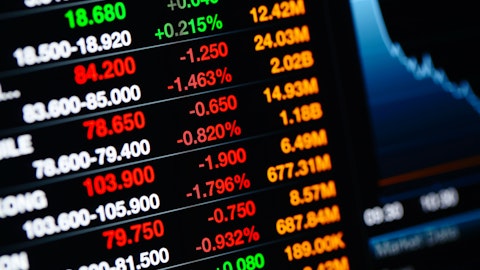Once ECL establishes a relationship with a customer, it works to introduce new products and solutions from all of its business segments. For example, ECL might first win business with a restaurant with its dishwashing technology. From there, the company can try to sell products needed to clean the restaurant, help with water filtration, eliminate pests, keep food safe, repair kitchen equipment, and much more. Hotels are similar – their food services are very similar to a restaurant, and they have substantial room cleaning and laundry operations that can all use ECL’s products.
With such a large service network in place, ECL is able to develop or acquire new products that can be scaled across its global operations or cross-sold into related markets very efficiently. As the largest player in the market, ECL also benefits because the largest customers in the market require a supplier that can meet their needs on a national or global level. They do not want to work with 100+ suppliers and systems around the world. ECL is uniquely positioned to handle their scale and complexity thanks to its breadth of products and global service team. As those big customers grow their businesses and expand into new regions, ECL grows with them.
The very nature of ECL’s products further adds to the strength of its business model. Over 90% of ECL’s business is a recurring revenue stream (e.g. customers consume ECL’s sanitizers and need to reorder). While this provides reliable cash flow and stable operating margins (see below), it also results in customer relationships that often last for decades.

Source: Simply Safe Dividends
With cleaning and sanitizing products representing a small cost of the customer’s overall operations, ECL should retain the business as long as they don’t screw anything up. Furthermore, ECL’s 25,000+ customer-facing employees build stronger relationships with customers and gather information critical to serving their needs better through their on-site visits.
Overall, ECL’s leadership in the huge global markets for food, water, energy and healthcare provide plenty of long term growth potential. The company seeks to grow earnings by 15% per year and improve its return on invested capital to 20% over time.
Key Risks
Ecolab Inc. (NYSE:ECL)’s acquisitions of Nalco (2011 – $8 billion) and Champion Technologies (2013 – $2 billion) meaningfully altered the company’s mix. More specifically, they increased the company’s exposure to industrial production and energy markets.
Some investors worried that ECL added unnecessary volatility to its otherwise stable business model. Management had to cut guidance twice in 2015 (extremely rare for ECL), perhaps adding some legitimacy to these concerns.
With energy markets reeling and global growth remaining sluggish, these fears could be put to the test in 2016. The stock continues trading at a relatively high earnings multiple, suggesting that investors expect ECL to power through just about any macro environment like it always has with little fundamental risk.
However, if depressed oil prices and sluggish industrial activity disrupt ECL’s results, the stock could meaningfully correct. During the third quarter of 2015, ECL’s Global Energy segment saw its sales fall by 12% in the third quarter of 2015. Time will tell how the next few quarters turn out with even lower oil prices, but if the company reports a material earnings miss, its valuation multiple could contract significantly (this would be a great buying opportunity). The company’s stretched balance sheet doesn’t help either.
Even if ECL’s business is somewhat more volatile than it was in the past, the company is still extremely durable. It is well diversified by product, geography, customer, and technology. About 90% of its sales are also recurring revenue streams in the form of consumable products (e.g. soaps, chemicals). ECL is here to stay for many years to come.





